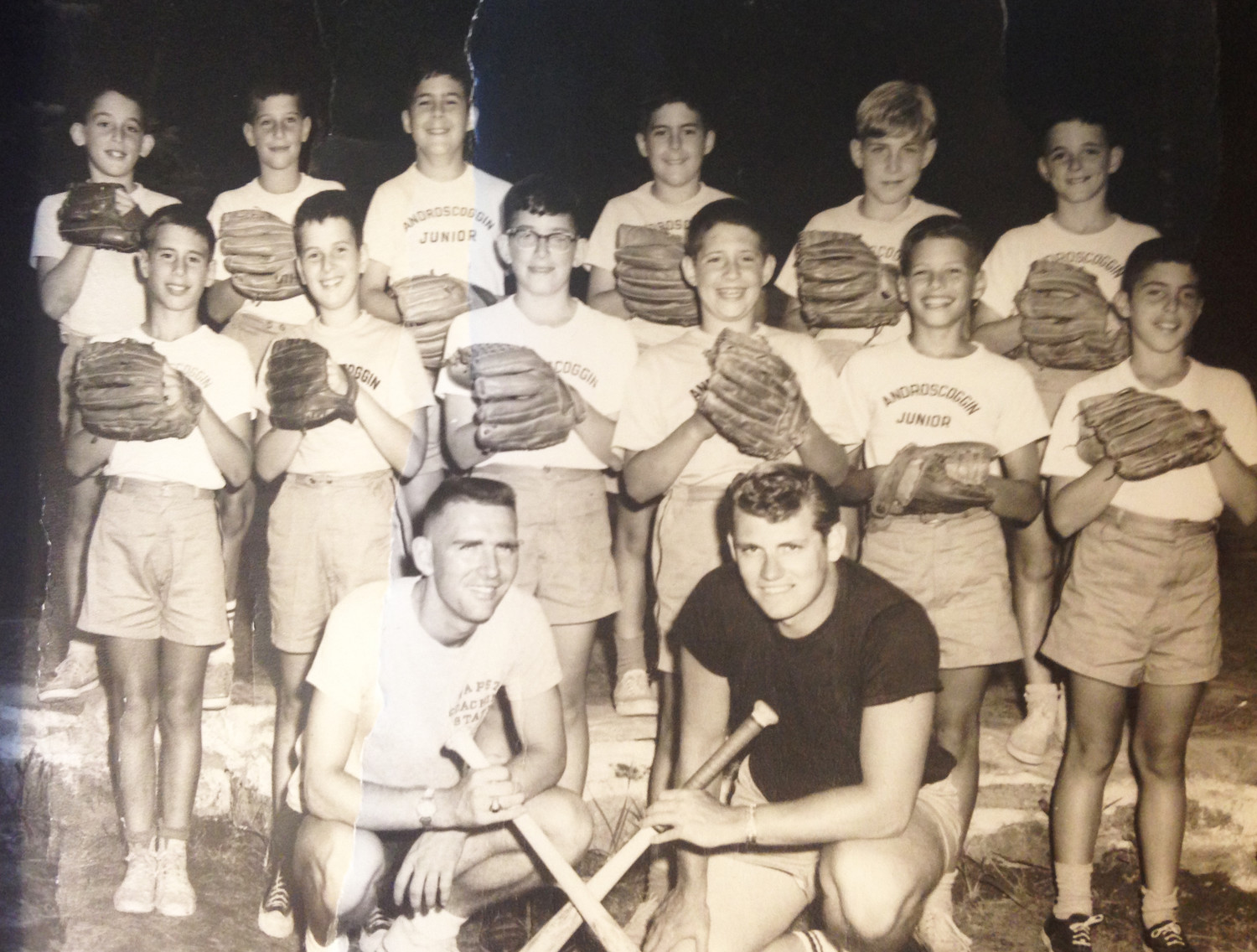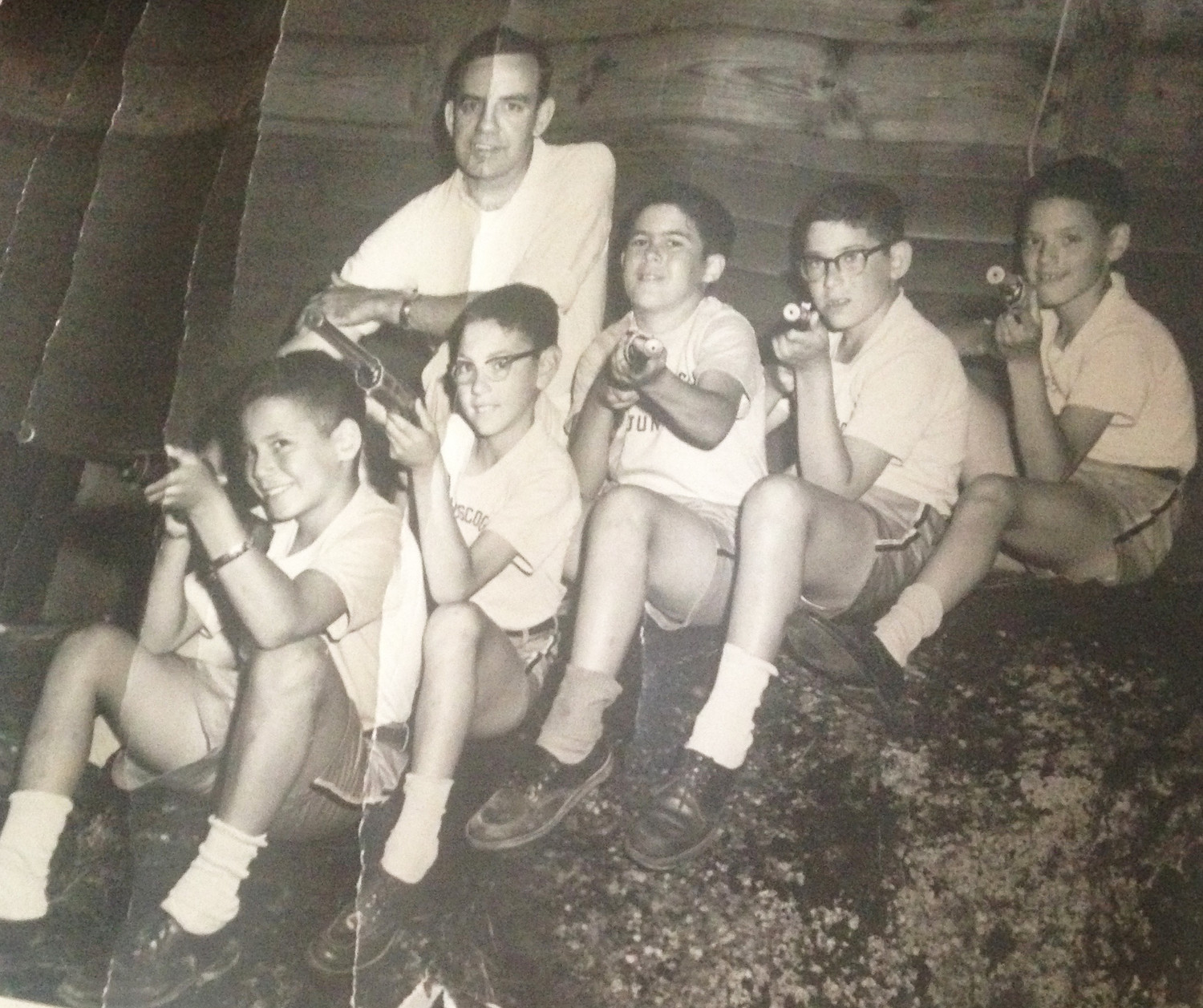Winning and losing on the playing fields of Wayne, Maine
If there are different lessons for boys to learn about becoming men, where will they be taught?
In the world of innovation, practitioners understand the value of failure as a learning process in moving toward success. Most small business ventures fail, again and again, before they evolve and find a better path toward opportunity.
The 2018 Winter Olympics provided any number of lessons about the failure to admonish bad behavior by men such as Shaun White, celebrated as a gold medal winner but who dismissed charges against him of sexual harassment as “gossip.”
As we celebrate athletes in competition with fanfares, national anthems and opening and closing gala ceremonies, let us not forget the scandal that rocked the U.S. gymnastics community of years of sexual assault by the team doctor, with those in authority ignoring the complaints of the young women athletes.
PROVIDENCE – It was a bit surreal to see Jeff Lurie, the owner of the Philadelphia Eagles, accept the Lombardi Trophy, after his team defeated the New England Patriots in the Super Bowl.
Much has been written about Lurie, the scion of a wealthy Massachusetts family, and his career as a movie producer and then as an NFL owner.
Little if anything has explored how Lurie’s character may have been shaped on the playing fields of Wayne, Maine, the home of the summer camp for boys, Androscoggin.
Lurie was, like Patriots owner Robert Kraft, and the Hassenfeld brothers, Alan and Stephen, a member of the club of famous alumni who attended Camp Androscoggin. So, too, were Tom Lehrer and Steven Sondheim.
I also attended Androscoggin, but I was one of the not-so-famous alums.
My first encounter with Lurie was in the summer of 1960, when we were campers at Androscoggin Jr. in Wayne, Maine, both 8 years old.
That was the year John Kennedy was elected President and the Philadelphia Eagles won the NFL championship played at Franklin Field in Philadelphia, when they defeated the Green Bay Packers, 17-13. The game ended with the Eagles linebacker Chuck Bednarik tackling Jim Taylor of the Green Bay Packers at the nine-yard line, refusing to let him get up as the clock ran out. Bednarik was better known for his vicious hit earlier that season on Frank Gifford of the New York Giants, knocking him unconscious – and out of football for a year.
Boys to men
During the next few summers, Lurie and I often did battle on the playing fields of Androscoggin, inculcated with the rites of color wars, athletic competition, and ritualistic cheers. We lived in wooden bunk cabins, swam, rowed and canoed on Lake Androscoggin, raised and lowered the flag every day, learned how to make cooking fires, and played a safe version of mumblety-peg with our jackknives.
We played together on the undefeated Androscoggin Jr. baseball team in 1963, which went 5-0, including defeating the baseball team from Androscoggin Sr.
Lurie was a pitcher and I was a catcher, as I recall. Also on the team were Bruce Berman, who also later became a successful Hollywood producer, and his twin brother, Burt. Somewhere in a a five-drawer metal filing cabinet in storage, I believe I have a team photo from the undefeated 1963 team. [The only photo I found in my initial search was one of my cabin bunkmates from the summer of 1962, posing with BB rifles. A more recent search turned up the missing photo of the baseball team from 1963.]
Lurie was a much better athlete, if I’m honest. In 1962 and 1963, we often competed against each other for the designation of camp champ in numerous challenges: who could throw the most strikes out of 20 pitches, for instance, which Lurie won and I came in second.
The only time I ever beat him was in 1962 in the BB rifle shooting competition to become camp champ, shooting a 49 out of 50.
In retrospect, I realize, the competitions probably meant much more to me than to Lurie. As a son of wealth and privilege, Lurie was accustomed to winning; I, on the other hand, was more of an anxious striver, accustomed to hardscrabble battles on the public playgrounds, often losing. I doubt if Lurie even remembers me, to be frank.
A fall from status
Then, too, my grandfather had suddenly liquidated the family business in March of 1961, leaving my father without a job, resulting in a severe plunge in our family’s financial well being. Guaranteed protection against holes-in-the-knee or get a free pair of new pants, a promotion offered by a local department store, became a lifeline for each of my growth spurts during those years.
I doubt that Lurie ever had to go to an S&H Green Stamp redemption store to have his dad buy him a football to play with.
To be honest again, I did win some competitions, too. I won the local Punt, Pass and Kick competitions two years in a row, the first in western Massachusetts in 1962, the second in north central New Jersey 1963, where my family had moved when my father started a new business.
Winning and losing
The novelist George Orwell once wrote: “Probably the battle of Waterloo was won on the playing fields of Eton, but the opening battles of all subsequent wars have been lost there.” Wealth, privilege and class does have its limitations.
It was in my last year at Androscoggin Jr. in the summer of 1963 that I learned my most valuable lesson about competition and winning and losing.
There were two sets of shin guards, one with a broken knee strap, and a newer one, for use by catchers. For whatever reason, the newer shin guard got hung up by mistake as part of a mess hall display celebrating our undefeated baseball team.
That left the shin guard with the broken knee strap for me to wear in a meaningless color war baseball game, orange vs. black. Despite my protestations, I was ordered to wear the broken shin guard by one of the counselors. Sure enough, a batter swung and there was a foul tip, which hit my unprotected knee.
I yowled in pain, limping up the first base line. The resultant knee injury and damage to the cartilage resulted in my need for surgery later that December. I ended up wearing a cast for three months. I tried out for Little League the next spring still wearing a full-length cast on my leg.
I did not return to Androscoggin the next summer. [More than three decades later, I learned from going through my father’s papers after he died that Androscoggin had paid the medical costs for my surgery.]
The limits of competition
The knee surgery changed everything for me as a young athlete. I spent three months in a cast, walking around on crutches. It took some four months after the cast came off before I could fully bend my right knee. [Physical therapy was not part of the health care continuum back then.] In the future, I would always be a step slower, my left leg longer than my right. For want of a shin guard…
My injury and its consequences clearly planted a seed of doubt about the idea that winning was the only thing, that competition was the best way to define your life. Instead, I learned to appreciate the humility that can be found in being disabled from injury and recovering.
[Another seed planted, perhaps, was an important lesson about standing up for yourself, and not being forced to do stupid, dangerous things as a way of proving your manhood or toughness.]
Oh, I still loved sports, and I still competed. Now in New Jersey, I was recruited to play for the St. Rose of Lima football team, the first time a Jew had integrated that team. I played basketball and baseball in junior high and ran cross-country and played baseball in high school.
Yet, following encounter after encounter with brutal, profane high school coaches, I took a different approach to competition. It came in part from running cross-country, a sport at which I was never very good; in three years I never graduated from the junior varsity team. What mattered was the mental challenge in running, in finding my own pace, realizing that I could run for miles and miles.
As a 20-something, I became a devotee of pick-up basketball wherever I could find a game, in gyms or on macadam courts on the street, in Philadelphia, in Washington, D.C., in Los Angeles and in Greenfield, Mass. The games were often intense. But my life was not defined by winning and losing, because the reality is, if you compete, you are going to lose.
The playing fields of Wayne
I did return to Wayne, Maine, to attend Androscoggin Sr. the summers of 1965 and 1966, with the 1960s in full flower and the lurking presence of the Vietnam War hanging as a dark shadow over our lives.
I played catcher on the baseball team, which also went undefeated. The first baseman was Tony Schwartz, a tall, brash, loud, redhead from New York City. From my impressions of him at summer camp, it was easy to see how he was a natural to be hired to write Donald Trump’s The Art of the Deal.
In searching for the missing photograph of the undefeated Androscoggin Jr. baseball team from 1963, I found instead the beginning of an essay written in response to my college asking for details of the successes I had achieved in preparation for the 30th reunion, stories that could be shared with the news media.
“My story is not one that will ever be chosen and retold in order to market the success of the college as measured by the accomplishments of its graduates,” I had written. “It is not a work of art that can be displayed in a gallery. It is not a movie that will receive words of praise by a reviewer. It is not a tale upon which the college will be able to build its endowment. I have created no wealth, fame or status worthy of harvesting by the college.”
But, I had continued: “It is a life filled with value and meaning and challenge.”
Nowhere in our society, I wrote, “which is driven by the need to perform for status and accolades and achievement and outrageous accomplishment – do we recognize the small, everyday routines that make up our lives.”
What we remember
In my mind I try to imagine a gathering of myself, Lurie, Schwartz, Berman, Hassenfeld and others to reminisce about Androscoggin. The reality is that I doubt any of them would be much interested in talking to me or listening to my stories.
When Lurie accepted the Lombardi trophy, he attempted to thank his parents for believing in him and supporting him. The TV announcer interrupted him twice before he was able to do so.
Watching, it seemed sad. Despite being the owner of the team that just won the Super Bowl, and the prestige and status that goes with that, the announcer gave short shrift to Lurie’s attempt to acknowledge and thank his parents for the support they had given him.
Perhaps it is the price that is paid for believing that winning is everything, the only thing.







